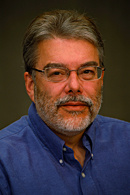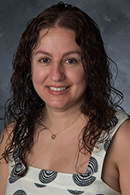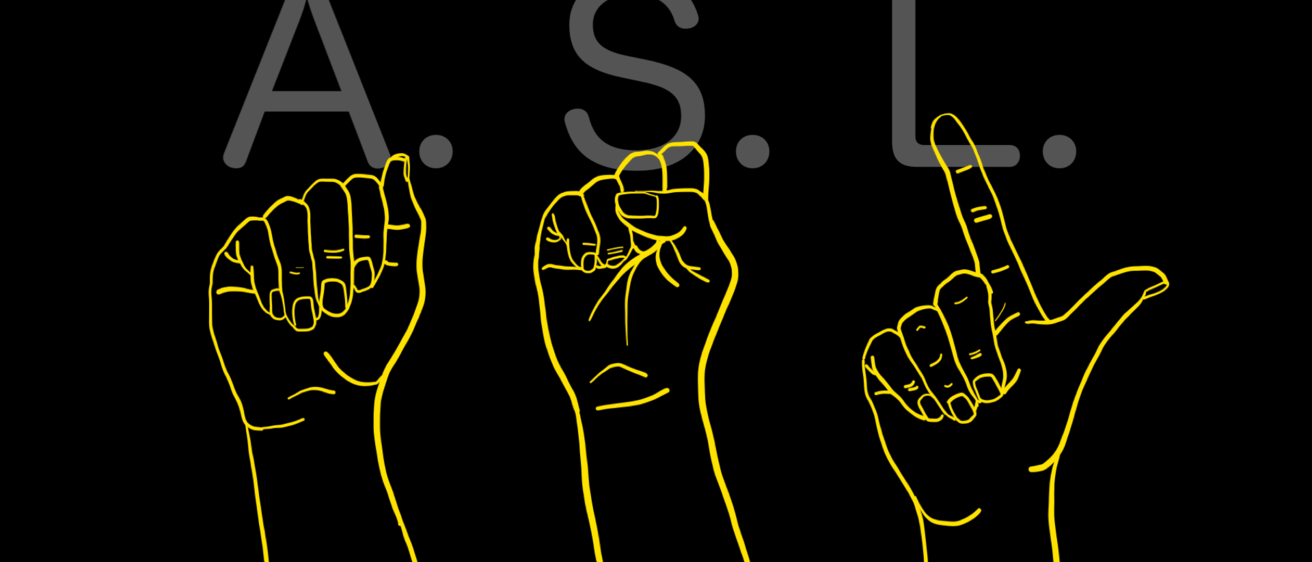By Lois J. Gray
This funding will help increase the number of highly-trained vocational rehabilitation counselors, critical to meeting the needs of persons with disabilities securing and maintaining competitive employment.
Thanks to a nearly $1-million-dollar federal grant received by the University of Iowa College of Education, individuals who are deaf or with hearing loss will be able to receive services from vocational rehabilitation counselors who speak American Sign Language (ASL).
The U.S. Department of Education grant funds a joint project between the Rehabilitation Counseling Program in the UI College of Education, the American Sign Language Program in the Division of World Language, Literature and Cultures in the College of Liberal Arts and Sciences, and Iowa Vocational Rehabilitation Services (IVRS).
ASL programs throughout the Midwest are also supporting the program by publicizing advanced training opportunities.
This will help increase the pool of eligible applications to vocational rehabilitation services, critical to the state of Iowa and region due to an identified shortage of employment specialists, especially in rural areas.

“Although the overall unemployment rate in Iowa is low, the unemployment and under employment rates for persons with disabilities, especially severe disabilities, remain high,” says John Wadsworth, UI professor of rehabilitation counseling and grant co-director. “We are proud that our program can help Iowans with disabilities receive the counseling, career planning, training, support services, and job placement needed to help with employment and life goals.”
The U.S. Department of Education grant will provide funding to 70 qualified rehabilitation counseling students over the next five years to complete their master’s degree in the UI’s nationally-ranked Rehabilitation Counseling Program. In return for support, graduates of the program agree to work in state or federal non-profit agencies that provide employment and related services to people with disabilities.
This funding will help increase the number of highly-trained vocational rehabilitation counselors, critical to meeting the needs of persons with disabilities securing and maintaining competitive employment. There will be more than 400 projected vacancies in Midwestern state vocational rehabilitation offices in the next five years.
Counselors who speak ASL not only work with persons with hearing loss, they also provide critical psychosocial and vocational rehabilitation support services to individuals who communicate in ASL. This includes those who have verbal communication insufficiency due to intellectual disabilities, Down syndrome, autism spectrum disorder, cerebral palsy, trauma, brain disorders, aphasia, or speech disorders.
Counselors who are ASL-able can support rehabilitation specialists who serve deaf consumers and broaden the ability of vocational rehabilitation services to meet the needs of all Iowans in their home communities.
All master’s-level trainees will participate in a rigorous, established, and sequenced curriculum which is accredited by the Council for Accreditation of Counseling and Related Educational Programs (CACREP) and blends theory, research, and practice.
The curriculum is taught by full-time, tenured faculty who are engaged in employment rehabilitation and employment research, consultation, and program evaluation projects. All students will receive high-quality mentoring by faculty on campus and at vocational rehabilitation offices. Students will also complete two extensive field experiences at state vocational rehabilitation offices.
Students will benefit from IVRS throughout the program and post-graduation. Upon entering the program, students will receive mentoring by IVRS staff through a formalized mentorship program, including job-shadowing at local vocational rehabilitation offices. Students will also complete two extensive field experiences at state vocational rehabilitation agencies, and provide direct and tele-rehabilitation services to clients, while concurrently receiving supervision from both the site and program.

"This is especially significant because the tele-rehabilitation service delivery component will enable us to reach more people in rural communities who otherwise would not be able to access services,” says Jennifer Sánchez.
Sánchez, assistant professor and coordinator of the UI Rehabilitation Counseling (RC) and Clinical Mental Health Counseling (CMHC) programs, is the other grant co-director.
The faculty and curricula emphasize the provision of services to persons from diverse backgrounds, with an emphasis on persons with the most severe disabilities, those in rural and underserved areas, and persons from minoritized ethnic, cultural, gender, and socioeconomic groups.
“The trainee scholarship program will help us be able to recruit a highly qualified and diverse learning community from across the country, which will create a unique learning community and provide opportunities for students to learn from one another,” says Sánchez.
IVRS, along with offices of vocational rehabilitation in surrounding states, strongly support funding for rehabilitation counselors-in-training. Based on projected job openings, there will be a critical need for newly graduated qualified rehabilitation counselors in public and private service in the next decade, Wadsworth says.
“The funding provided by the U.S. Department of Education to students through the Rehabilitation Counselor Education Program will help ensure that clients of state and federal vocational services rehabilitation agencies continue to receive high-quality employment assistance,” Wadsworth says. “IVRS provides continuous employment opportunities for our graduates, with many of our students getting hired by their site in their final semester.”
U.S. News & World Report ranked the UI College of Education’s Master of Arts in Rehabilitation Counseling the ninth best program nationally in its most recent graduate edition report. For more information, contact Wadsworth at john-s-wadsworth@uiowa.edu, 319-335-5246, or visit the Rehabilitation Counseling Program website.
